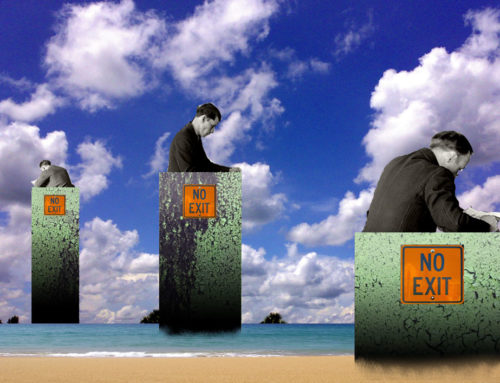Howl of the Day: Feb 9, 2016
In an impressive article in the New York Times, Robert Frogeman and Adam Briggle call for a re-examination of the place of philosophy in society.
Articles like this one are much needed to inform discussions in today’s intellectual, political, and educational realms. The authors, Frogeman and Briggle, do an admirable job of tackling a difficult subject, and they do it in a lucid and accessible manner. Their article rightly draws our attention to some of the problems associated with the attempt to place philosophy into an academic setting in the 19th century. They show how these problems persist today and have indeed worsened over time, and they give some indication as to how it is not just philosophy which has lost it’s way, but perhaps all of human inquiry as a result.
There is a weakness of the piece, however, that is worth consideration. Frogeman and Briggle appear to overestimate the extent to which philosophy becoming lost has been caused by the trend toward specialization in the universities that it has ostensibly inhabited since the late 19th century. The authors do point to an earlier, more profound trend – the divorce of the sciences (natural and social) from philosophy. No doubt that is a greater cause of the loss than academic specialization. But wasn’t there always a problem?
Philosophy began with a problem – it was a comprehensive way of life (as we tend to forget) that was in tension with the demands of the city, or with political life. This tension constitutes, of course, the basic action of Plato’s “Apology”, in which the philosopher, Socrates, is put on trial by the city of Athens and sentenced to death.
Philosophy could never be part of the academy, nor the establishment, not really. It was at its outset and it remains a calling for rare and individual men. So what does it mean to lament its absence in the academy? Does philosophy really need the universities? Has it ever? Or do the universities need philosophy?
Perhaps a clue to the source of the piece’s weakness lies in the following assertion – “There was a brief window when philosophy could have replaced religion as the glue of society; but the moment passed.” In this, the authors of the piece appear to be paraphrasing the academic philosopher, Alasdair MacIntyre, and adding something of their assent to the view. But the very notion that philosophy, rather than being an irritant to society, could in fact become the “glue” that holds it together, or, in other words, that philosophy could become politics, shows how far adrift we have gone from understanding philosophy as a way of life, a difficult one, and one which furnishes the organizing principle of human knowledge. It is actually the mistaken idea that society can be governed philosophically, or that society can become philosophic in general, that undergirds the break between philosophy and science, the rise of specializations, and so much more.









Norman Mailer noted the moral contradiction at the heart of America’s schizophrenic culture: lip-service to the Prince of Peace while actually worshiping money. Richard Rorty is one of the few philosophers to address this issue — with courage, wisdom, and lucidity. Now, there’s a valid place for specialization in the history and continuance of philosophy. As Whitehead observed, singularity of depth has application to making broad and important connections. Alas, all too much philosophy is so specialized as to remain irrelevant to the catastrophic issues with which we are confronted; and so remains mostly just an academic exercise in intellectual masturbation. Rorty was right to urge philosophy to become a form of “cultural politics;” and to do so effectively, it must include what Michael Parenti calls “real history,” challenging the patriotic mush that dominates education at all levels and permeates the mainstream media. Let’s face it: the primary function of American education is to ignorate, all too often becoming an instrument in the power elite’s Weapons of Mass Dysfunction: deception, distortion, and distraction. Philosophy’s apparent irrelevance to modern American culture is partly a function of philosophy’s own refusal to be authentically informed, daring, and Socratic, yet mostly a function of the mainstream news media’s successful banishment of philosophic discourse from the marketplace of ideas. There is a philosophy embodied in the Declaration of Independence and the Constitution, and academic and social philosophers desperately need to address the long history of its betrayal. Otherwise, the tattered remnants of our democracy will evaporate in a vortex of corporate, political and religious neo-fascism. America is the most hated country in the world; and for its citizens to become authentically virtuous, they need to understand why. Philosophers could play a vital role in that enlightenment; but they would first need to comprehend, then explain, why Kant was right: “We live in an age enlightenment, but we do not yet live in an enlightened age.”
“Let’s face it: the primary function of American education is to ignorate, all too often becoming an instrument in the power elite’s Weapons of Mass Dysfunction: deception, distortion, and distraction. ”
This is fairly easy to say, but impossible to substantiate. The very fact that the conspiracy, as you express it, becomes an exercise in alliteration (“dysfunction, deception, distortion, and distraction”) suggests that you are having a flight of fancy more than offering a valid point about American education.
Was George W. Bush a flight of fancy? Was Ronald Reagan and his sophistic, criminal, New-Deal-breaking policies? Is the Republican dominated Congress? Was Newt Gingrich, as House Speaker and author of the GOPAC pamphlet on using language to smear political opponents regardless of truth — over and over until the lies are believed? Are the current crop of Republican presidential candidates, with their “fundamentalist” and lunatic views? Deception, distortion, and distraction remain the mainstream corporate, political, and media weapons for keeping American citizens in Plato’s cave. In my last 30 years of teaching, I’ve had shockingly numerous students who have never heard a critical word about Ronald Reagan, and none who could name 9/11/ 73 in Chile as the first 9/11. In a sports obsessed, advertising drenched society such as ours, is it any wonder that Americans are among the most historically illiterate of any so-called “advanced” society? I suppose we could start the process of awakening from the nightmare of history by informing students and adults alike that the U.S. has vetoed more U.N. resolutions than any other country, and that the five permanent members of the U.N “Security” Council, whose primary function is to maintain world peace, are the world’s largest arms dealers. Even a cursory look at modern history will substantiate the fact that the primary function of the U.S. military is to make the world safe for the Fortune 500. “Blowback” is not a flight of fancy. Nor is the Christian Coalition’s scapegoating of Muslims for the terror required to support the American empire, make the rich richer, the poor poorer, and turn the biosphere into a Wasteland. The facts speak for themselves. My alliteration, far from being (by definition?) a “flight of fancy,” is simply a poetic (and hopefully memorable) way pointing to the most important and disturbing truths about why our society is so dysfunctional, and why America — with 800 military bases scattered across the globe — is the most hated nation in the world.
With due respect to Norman Mailer, I don’t believe that any education exists without contradictions of some kind, especially at the grade school level. That would look more like indoctrination than education. Don’t you think so, Stefan?
Moreover, as regards the “Prince of Peace”, I would say that there has been some kind of contradiction between Christian teachings and more worldly commitments in each and every place where there has been a part of education that was Christian. But that is not necessarily a critique of the matter. It is part of the function of Christian thought to pose a challenge to worldly commitments, especially to avarice, which you identify here as the worship of money.
Indoctrination is already the primary problem, and not just at the grade school level. Meanwhile, you are quite right to note that there have been many Christian peace-makers (Meister Eckhart, Thomas Merton and Matthew Fox come to mind), and that they forcefully argue for egalitarianism as well as peace. Sadly, until the advent of the current pope, most of them — including the Latin American Liberation Theologians, siding with the poor and the oppressed — were condemned by the Church. The awesome failure of America’s institutionalized religions to morally educate their congregations is evidenced by the ethical infantilism of most of our political leaders and the citizens who vote for them. Things would certainly be a lot different if the brightest lights of the Sixties – JFK, MLK, RFK — had not been assassinated.
I agree with much of what you say, Stefan, although I’m not entirely sure what you mean here by “indoctrination”. That doesn’t mean that I don’t think there is such a thing going on to some degree… I’m just not sure what you are referring to by it.
I would disagree with you, most respectfully, about advocacy for peace and egalitarianism being things that have really only been pronounced in Christian thought and practice since the advent of the most recent pope. There are, to be sure, many other things that Christians have advocated over time, both clergy and laity, but peace and equality (if not flat-out egalitarianism) have frequently been prominent causes. Machiavelli observed in The Prince, around 1513, that Christianity had the tendency to incline it’s adherents to peace, whereas political necessities required a more warlike countenance. In Machiavelli’s case, of course, the identification of the promotion of peace by Christian thought was a complaint. And no less than Alexis de Tocqueville, in his Democracy in America, identifies Christianity as a major cause (perhaps even the chief cause) of the marked tendency toward equality in Western and democratic nations.
I certainly agree with you that things would have been much different, had JFK, MLK, and RFK not been assassinated.